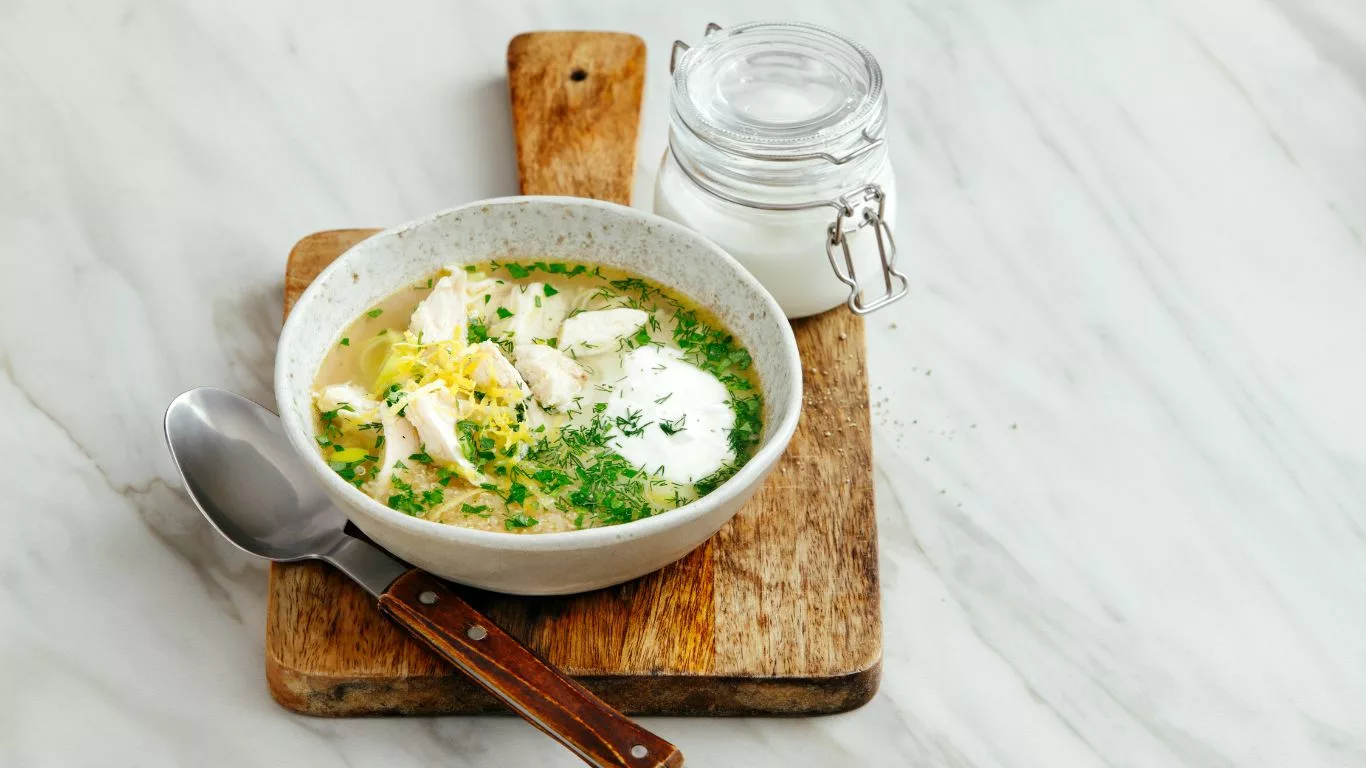GERD-Friendly Mediterranean Diet Tips: How to Enjoy Mediterranean Flavors Without Aggravating GERD
Looking to enjoy the Mediterranean diet without triggering GERD symptoms? This guide will give you all the tips and tricks to make your Mediterranean meals GERD-friendly while still being delicious and nutritious.
The Mediterranean diet is widely known for its health benefits, including promoting heart health, weight management, and reducing the risk of chronic diseases. However, if you have GERD (Gastroesophageal Reflux Disease), certain foods commonly found in Mediterranean meals can trigger your symptoms. In this article, we’ll explore how to modify the Mediterranean diet to keep it GERD-friendly without sacrificing flavor or nutrition.

What is GERD and How Does It Affect Your Diet?
GERD is a digestive disorder where stomach acid or bile irritates the food pipe lining. This condition can cause discomfort, heartburn, and even regurgitation of food. Certain foods can worsen these symptoms, so making dietary adjustments is crucial for managing GERD effectively. The Mediterranean diet is a great option for many people due to its emphasis on whole foods like fruits, vegetables, whole grains, and healthy fats. However, some traditional Mediterranean foods might not sit well with GERD sufferers.
GERD-Friendly Mediterranean Diet Tips
Adapting your favorite Mediterranean foods to be GERD-friendly doesn’t mean you have to sacrifice taste. With a few simple swaps and mindful choices, you can enjoy all the goodness this diet has to offer.

1. Focus on Lean Proteins
One of the cornerstones of the Mediterranean diet is seafood and lean meats like chicken and turkey. These are great sources of protein that are generally easy on your digestive system. Fatty meats, like lamb and pork, can trigger GERD symptoms, so it’s a good idea to limit these. Grilled fish, such as salmon or cod, is a great choice for a GERD-friendly Mediterranean meal.
2. Avoid Acidic Ingredients
Tomatoes, a staple in Mediterranean cooking, can be a trigger for GERD symptoms due to their acidity. While you might love a rich tomato sauce or a tangy salad dressing, it’s best to either reduce the amount you use or switch to milder alternatives. Consider substituting tomato-based sauces with olive oil and lemon juice for added flavor. If you’re craving that classic Mediterranean tomato taste, try cooking tomatoes into a sauce and removing the seeds to reduce their acidity.
3. Choose Whole Grains Over Refined Carbs
Whole grains like quinoa, barley, and brown rice are staples in Mediterranean meals. These grains are not only heart-healthy but also easier on the stomach compared to refined grains. Foods like white bread and white rice can contribute to GERD symptoms, so opting for whole grains will help maintain a balanced digestive system while sticking to the Mediterranean way of eating.
4. Opt for Healthy Fats
One of the best parts of the Mediterranean diet is its emphasis on healthy fats, particularly from olive oil. Olive oil contains anti-inflammatory properties that can help soothe the digestive tract and reduce GERD symptoms. Just be mindful of portion sizes since oils are calorie-dense. Avocados and nuts, which are also part of the Mediterranean diet, can be included in moderation as they provide healthy fats without being harsh on the stomach.
5. Keep Your Herbs and Spices Mild
Herbs and spices are a huge part of Mediterranean cooking, but some of them can be irritating to people with GERD. Spices like garlic, onions, and chili peppers can trigger acid reflux. Instead of garlic, try using milder herbs like basil, oregano, and thyme to season your dishes. Fresh mint is also a great option for adding flavor without the acidity.
6. Savor Your Vegetables, But Go Easy on Certain Varieties
Vegetables are a major part of the Mediterranean diet, but some can exacerbate GERD symptoms. For instance, cruciferous vegetables like broccoli, cauliflower, and Brussels sprouts may cause bloating and gas, leading to discomfort. Stick to milder vegetables such as spinach, zucchini, carrots, and bell peppers, which are easier on the stomach.
Meal Ideas for a GERD-Friendly Mediterranean Diet
If you’re wondering what a GERD-friendly Mediterranean meal looks like, here are a few ideas that align with the principles above:
1. Grilled Fish with Quinoa and Steamed Vegetables
A simple yet flavorful meal of grilled fish, such as salmon or tilapia, paired with quinoa and steamed vegetables like zucchini or carrots. Season with olive oil and fresh herbs like oregano and basil for a Mediterranean taste that won’t trigger GERD symptoms.
2. Greek Salad with Olive Oil Dressing
A classic Greek salad made with cucumber, bell peppers, and lettuce, drizzled with olive oil and topped with a few slices of avocado. Skip the onions and tomatoes if they tend to irritate your GERD. You can also add grilled chicken or fish for extra protein.
3. Hummus with Veggies
Hummus is a fantastic GERD-friendly snack. Made from chickpeas, olive oil, and tahini, it’s mild yet flavorful. Serve it with cut-up veggies like carrots, cucumbers, and bell peppers instead of pita bread to keep it light and easy on your digestive system.

Conclusion
Following a Mediterranean diet doesn’t mean you have to sacrifice flavor, even with GERD. By focusing on lean proteins, healthy fats, and mild herbs, and avoiding acidic and spicy foods, you can enjoy delicious Mediterranean meals without triggering GERD symptoms. Remember to listen to your body and adjust recipes as needed to suit your individual tolerance levels.
Appendices
References
For more information on GERD and healthy eating, check out these resources:
- American College of Gastroenterology. (2023). Managing GERD with Diet. Read Article
- National Institutes of Health (NIH). (2024). GERD and Nutrition: What You Should Know. Read Article
- European Society for Clinical Nutrition and Metabolism (ESPEN). (2023). Mediterranean Diet for GERD Patients. Read Article
FAQs
Here are some frequently asked questions about the GERD-friendly Mediterranean diet:
- Can I eat tomatoes on a GERD-friendly Mediterranean diet? While tomatoes are a common Mediterranean ingredient, they can be acidic and may trigger GERD symptoms. Try using them in moderation or switch to milder alternatives like olive oil and lemon juice.
- Are nuts allowed in a GERD-friendly Mediterranean diet? Nuts, like almonds and walnuts, can be included in moderation as they provide healthy fats and protein. However, avoid overly salty or spicy varieties.
- Is garlic safe for GERD sufferers? Garlic can be irritating to some people with GERD. You can try garlic-infused oil for flavoring instead, as it lacks the acidic compounds that cause reflux.
- What are the best fish options for a GERD-friendly Mediterranean diet? Lean fish like salmon, trout, and cod are ideal for a GERD-friendly Mediterranean diet. Avoid fried or heavily spiced fish dishes.
- Can I drink wine on a GERD-friendly Mediterranean diet? Alcohol, particularly red wine, can trigger GERD symptoms for some people. It’s best to limit or avoid alcohol, but if you do drink, opt for white wine and in moderation.
Disclaimer: The information in this article is for educational purposes only and is not a substitute for professional medical advice. Always consult with your doctor or dietitian before making changes to your diet, especially if you have GERD or other health conditions.

Dr. Gwenna Aazee is a board-certified Internal Medicine Physician with a special focus on hypertension management, chronic disease prevention, and patient education. With years of experience in both clinical practice and medical writing, she’s passionate about turning evidence-based medicine into accessible, actionable advice. Through her work at Healthusias.com, Dr. Aazee empowers readers to take charge of their health with confidence and clarity. Off the clock, she enjoys deep dives into nutrition research, long walks with her rescue pup, and simplifying medical jargon one article at a time.







